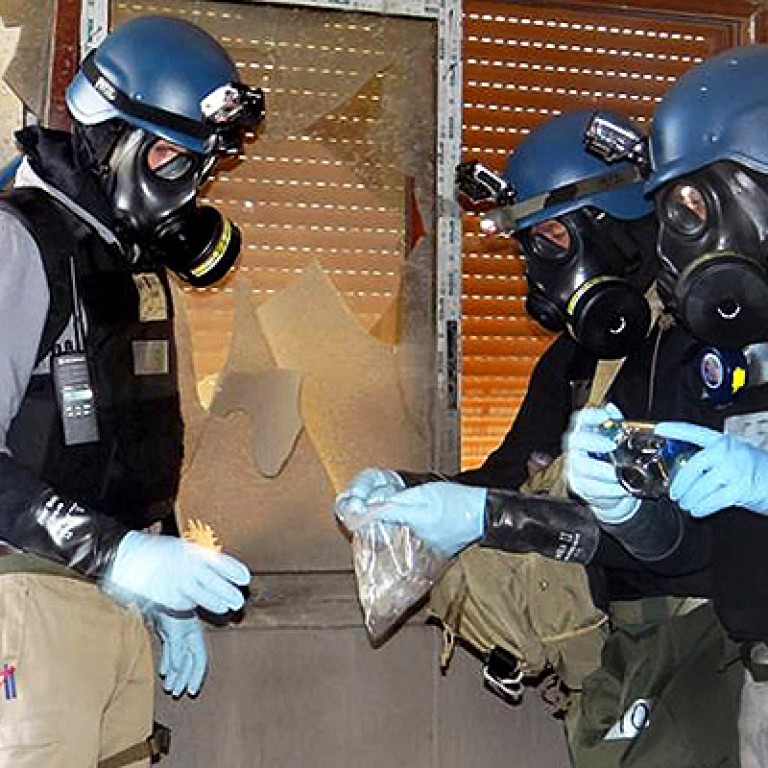
Disposal of Syria’s chemical weapons fraught with difficulties
Experts say Russian plan would mean venturing into uncharted territory as fighting continues
Russia's proposal to place Syria's chemical weapons under international control would be troublesome to enact given it would require time and total co-operation from a secretive regime fighting for survival.
Experts say the idea floated by Russian Foreign Minister Sergei Lavrov on Monday and accepted by Syria yesterday under which Syria's arsenal would be destroyed under supervision, ventures into uncharted territory, as previous arms control efforts have been carried out after - and not during - a conflict.
With more than 1,000 tonnes of chemical agents and precursor chemicals, the Syrian regime, suspected of using such weapons, has one of the world's most significant stockpiles, according to a French intelligence report.
But the process of removing such arms from President Bashar al-Assad's reach while rebel fighters continue to push for the fall of his government would present major difficulties even if such an accord was reached.
"It's hard for me to imagine how that would happen in the middle of a civil war," said Daryl Kimball, executive director of the Washington-based Arms Control Association.
It's hard for me to imagine how that would happen in the middle of a civil war
"This is a very difficult engineering task. It requires facilities to be built to destroy the weapons," he said.
Such an undertaking would require a long-term international presence to track the process, said Kimball. "It's not something you want to do with the threat of mortar shells hitting the area."
The Russian plan implies that Syria would have to sign the international Chemical Weapons Convention, forcing it to divulge every detail of its arsenal - a radical move for a regime preoccupied with buffeting its foes, both foreign and domestic.
Former UN weapons inspector David Kay, who oversaw the search for weapons of mass destruction in Iraq that were never found, has said any effort to secure chemical weapons sites in Syria would require elaborate, round-the-clock security to "ensure others are not entering".
Even in peaceful settings, destroying a country's chemical stockpile under international law is a complicated undertaking that takes years and billions of dollars, with international inspectors on hand at every step.
There are essentially two ways to get rid of chemical weapons - burning them in an incinerator, which has been the primary method in the US, or neutralising them with other chemicals, which has been the approach in Russia and - most recently - Libya, experts said.
Neutralising lethal agents drastically reduces their toxicity to a level equivalent to typical industrial waste, said Michael Luhan, of the Organisation for the Prohibition of Chemical Weapons in The Hague.
